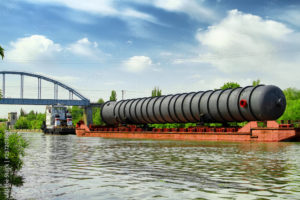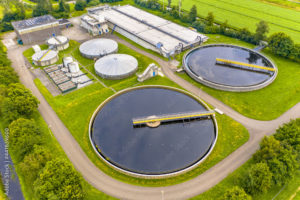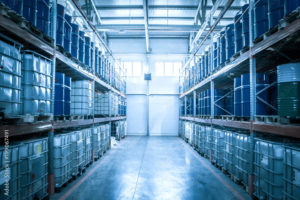Introduction:
Chemical distribution businesses play a vital role in supplying a wide range of chemicals to various industries. One such indispensable chemical is Sodium Hydroxide, commonly known as NaOH. In this blog post, we will delve into the world of NaOH flakes, exploring their features, applications in different industries, safety measures for handling, preferred transport methods, and best practices for their usage.
Understanding NaOH Flakes:
NaOH flakes, also referred to as caustic soda flakes or sodium hydroxide flakes, are solid white crystalline substances. These flakes are highly soluble in water and exothermically react with acidic and neutral substances. NaOH flakes are renowned for their versatility and have become a staple in countless industrial processes.
Features and Properties:
NaOH flakes possess several key features that make them a preferred choice for numerous applications:
a. High Alkalinity: NaOH flakes are highly alkaline, making them ideal for neutralization and pH adjustment processes.
b. Strong Reactivity: The flakes have a strong affinity for acidic compounds, enabling them to effectively neutralize acids and facilitate various chemical reactions.
c. Solubility: NaOH flakes dissolve readily in water, allowing for easy handling and usage.
d. Hygroscopic Nature: These flakes tend to absorb moisture from the air, necessitating proper storage in airtight containers.
e. High Purity: Quality NaOH flakes exhibit high levels of purity, ensuring consistent and reliable performance.
Applications in Various Industries:
The versatility of NaOH flakes makes them indispensable across multiple industries, including:
a. Chemical Manufacturing: NaOH flakes are used in the production of various chemicals such as detergents, soaps, dyes, and pharmaceuticals.
b. Pulp and Paper Industry: These flakes play a crucial role in pulping, bleaching, and pH regulation during paper manufacturing.
c. Textile Industry: NaOH flakes are utilized for fabric mercerization, desizing, and scouring processes.
d. Petroleum Refining: The petroleum industry relies on NaOH flakes for refining petroleum products and removing impurities.
e. Water Treatment: NaOH flakes are effective in water treatment processes, including pH adjustment, wastewater neutralization, and flocculant activation.
f. Metal Cleaning and Processing: NaOH flakes are employed for cleaning and etching metals, as well as electrolyte replenishment in electroplating.
g. Food and Beverage Industry: NaOH flakes are used for cleaning and sanitizing equipment in the food and beverage processing industry.
Safe Handling of NaOH Flakes
As with any chemical, it is crucial to follow proper safety measures while handling NaOH flakes. Here are some guidelines:
a. Personal Protective Equipment (PPE): Always wear appropriate PPE, including gloves, goggles, and protective clothing, to minimize the risk of direct contact.
b. Ventilation: Work in a well-ventilated area to prevent the accumulation of fumes or vapors.
c. Storage: Keep NaOH flakes in a cool, dry, and well-ventilated area away from incompatible substances. Ensure containers are tightly sealed to prevent moisture absorption.
d. Spills and Leaks: In case of spills or leaks, contain the material and clean it up promptly. Avoid contact with skin or eyes, and dispose of waste properly.
e. First Aid: In case of exposure or accidents, immediately rinse the affected area with plenty of water and seek medical attention if necessary.
Transport Methods for NaOH Flakes:
Transporting NaOH flakes safely requires careful consideration. Preferred methods include:
a. Secure Packaging: Ensure that NaOH flakes are properly packaged in leak-proof containers to prevent spillage during transit.
b. Labeling: Clearly label containers with appropriate hazard symbols and handling instructions for the safety of transport personnel.
c. Compatibility: Avoid transporting NaOH flakes with incompatible substances to prevent potential reactions or hazards.
d. Regulatory Compliance: Comply with local and international regulations governing the transport of hazardous chemicals.
Best Practices in Using NaOH Flakes:
To maximize the benefits of NaOH flakes and ensure safe usage, here are some best practices to follow:
a. Proper Dilution: Always add NaOH flakes to water slowly and gradually to avoid splashes or heat generation.
b. Stirring: Stir the mixture gently to ensure uniform distribution and complete dissolution of NaOH flakes.
c. Handling Concentrated Solutions: Exercise caution when working with concentrated NaOH solutions, as they can be highly corrosive. Dilute them to desired concentrations as required.
d. Storage: Store prepared NaOH solutions in clearly labeled containers, away from reach and sight of children and unauthorized personnel.
e. Disposal: Follow appropriate disposal procedures in accordance with local regulations. Avoid releasing NaOH solutions directly into the environment.
Conclusion:
NaOH flakes are indispensable chemicals that find applications across a wide range of industries. Their versatility, strong alkalinity, and solubility make them highly sought after for various processes. By understanding the features of NaOH flakes, following safe handling practices, using preferred transport methods, and adhering to best practices, businesses can ensure the efficient and safe utilization of this essential chemical.
By partnering with a reputable chemical distributor, businesses can procure high-quality NaOH flakes and benefit from their versatile applications while prioritizing safety and regulatory compliance. NaOH flakes truly exemplify the essential role that chemical distribution businesses play in supporting diverse industries and facilitating their growth.
Key Phrases
- NaOH flakes properties and uses
- Sodium hydroxide flakes applications
- Safe handling of caustic soda flakes
- Transport methods for NaOH flakes
- Best practices for using NaOH flakes
- The versatility of NaOH flakes in industries
- Sodium hydroxide flakes in chemical manufacturing
- NaOH flakes in water treatment processes
- Handling and storage of NaOH flakes
- Benefits and features of caustic soda flakes








